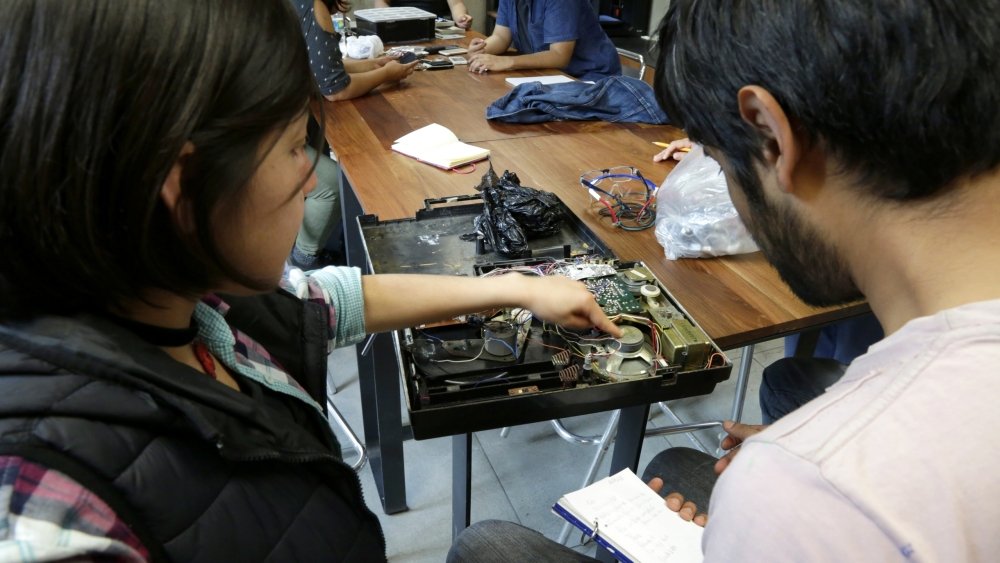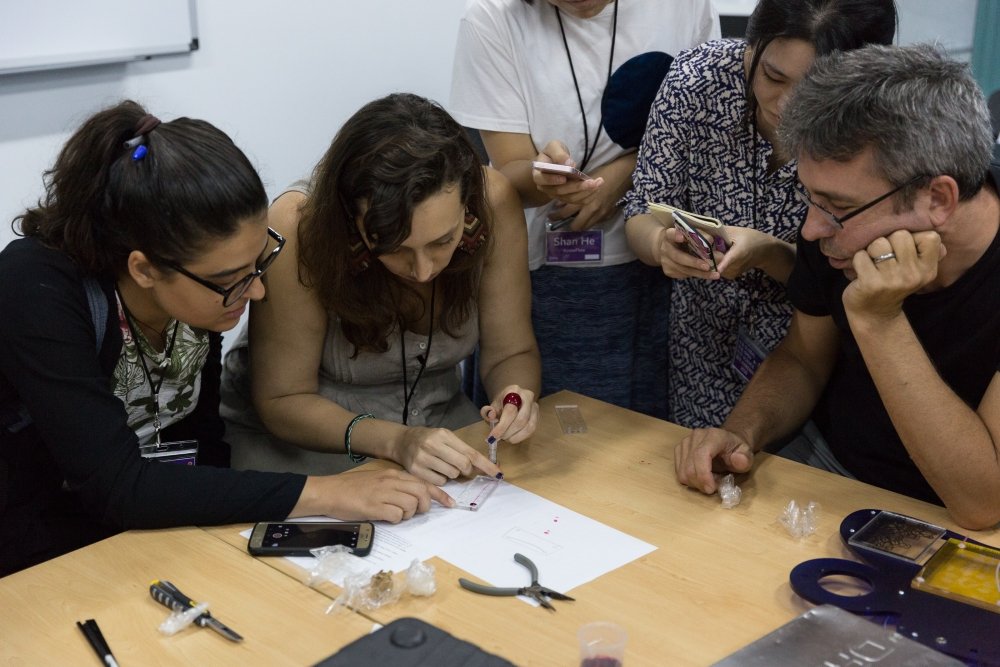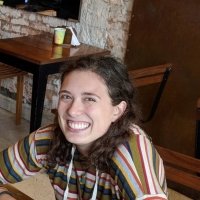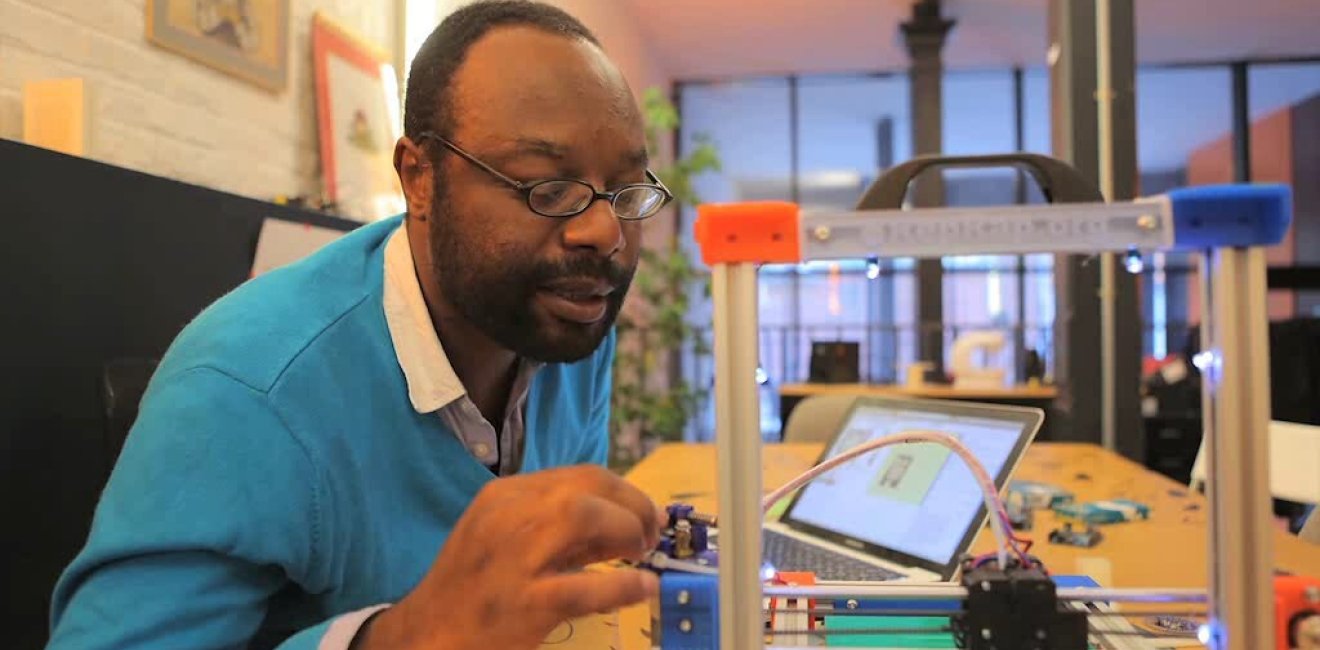
A blog of the Science and Technology Innovation Program
In the THING Tank Initiative, we’re working to understand how low-cost and open source hardware are helping change how science happens. Beyond understanding specific tools, we are interested in converging communities--understanding the relevant communities and paradigms these tools exist in and how they are furthering the conversation on open science in the US and around the world.
Collaboration is fundamental to science and innovation. New experiments build on the work of previous researchers, governments and private companies use external ideas to innovate, and experimental results are reviewed by peers.
Collaboration and community are defining features of low-cost and open source approaches to scientific hardware--the physical tools of science used to gather data and make new discoveries. Open source hardware fosters collaboration by making designs “publicly available so that anyone can study, modify, distribute, make, and sell the design.” Open source hardware can extend beyond physical tools to define “a practice, a discipline and a collective of people worldwide pushing for open access to the design of tools to produce scientific knowledge.”
Low-cost and particularly open source hardware can be situated within the broader open science movement, which seeks to broaden access to and participation in science. Low-cost tools encourage collaboration by broadening accessibility to the process of science and opening opportunities to entirely new types of users. Because of the collaborative, accessible nature of low-cost and open source hardware, new communities have coalesced around these tools, and new tools have emerged from within communities.
The Wilson Center’s Science and Technology Innovation Program (STIP) has been exploring low-cost and open source hardware’s impact through the THING Tank Initiative. We’ve been meeting community members and learning about their unique perspectives; we’ve been working to understand the tools within the community; and we’ve been analyzing the ways open hardware addresses present challenges.
Our next milestone is to understand not only the impact of low-cost and open source hardware, but also the communities and paradigms they are built around and exist in. We are interested in understanding how adjacent communities related to low-cost and open source hardware converge--when communities that occupy distinct spaces within the open science ecosystem have overlapping values, goals, or origins--and if and when key points of divergence exist.

An Ecosystem of Open Science Communities
Here, we define communities as groups, networks, and organizations with shared values or goals, a sense of belonging, and shared places (physical, virtual, and hybrid) for gathering. The communities involved in low-cost and open source hardware play central roles in the design and maintenance of a tool, the use of tools, and, more broadly, in building capacity for opening the processes and products of science.
But while the communities that create and use tools are critical to low-cost and open source hardware, they aren’t the only communities that matter. For example, open source software or citizen science communities share goals and values with low-cost and open source hardware communities, such as increased efficiency in research and innovation or increased transparency and accountability in publicly funded research. These adjacent communities may also work on complementary initiatives, such as developing digital fabrication spaces that support the innovation of low-cost and open source hardware.
Low-cost and open source hardware communities, and adjacent communities, exist within and alongside broader shared missions, practices, and frameworks, or paradigms. Paradigms such as open hardware, open innovation, citizen science, open access, open data, and free and open source software drive and contribute to the open science ecosystem. Understanding how different communities and paradigms interact is important for understanding the people and networks involved in the broader open science ecosystem.
Converging Communities: A THING Tank Initiative
According to the Open Source Hardware Association’s (OSHWA) Weather Report, “Even self-acknowledged open source hardware communities can come from different traditions, sometimes only slightly aware of one another.” Despites historical differences, communities and paradigms may overlap to some degree in their values or goals. Understanding the diversity, motivations, and background of low-cost and open source hardware and adjacent communities and how they fit into the open science ecosystem is beneficial for diverse stakeholders. Initiatives to understand these communities and paradigms can:
- Elucidate how low-cost and open source hardware relates to movements like open source software and other open science and innovation movements.
- Help funders and policy makers interested in these approaches to science understand the complexity and diversity of communities and paradigms in the open science ecosystem, to maximize synergy and value.
- Help low-cost and open source hardware communities and adjacent communities to find and collaborate with each other.
In the THING Tank Initiative, we’re working on various projects to understand convergence and divergence at the community and paradigm scale. At the community level, we are partnering with the Center for Scientific Collaboration and Community Engagement (CSCCE) to make profiles of low-cost and open source hardware and adjacent communities. These profiles will analyze the community structure of these communities.
To understand and map the interactions of these communities with paradigms, we are working with Interactive Strategies and community leaders to design a digital product that will explore how different communities are situated within, and help advance, open science paradigms. By offering an interactive experience, we hope to encourage others to have fun exploring and learning about this complicated space.
Finally, we will publish a synergistic research paper analyzing value alignment, motivations, and infrastructure of low-cost and open hardware paradigms in relation to other paradigms such as open source software and citizen science. This paper will also consider how different communities advance research across the scientific process, and what makes any successful community work. Through these converging communities initiatives, we hope to provide a space for communities to develop new relationships, share resources and strategies, and work together toward common and adjacent goals.

Call for Collaboration
Our hope is to continue to bring communities working in the open science ecosystem together throughout this initiative. If you and your communities are interested in forming new connections with communities and paradigms in the open science ecosystem, don’t hesitate to reach out: Dr. Anne Bowser, anne.bowser@wilsoncenter.org.
We look forward to hearing from you!
Authors





Science and Technology Innovation Program
The Science and Technology Innovation Program (STIP) serves as the bridge between technologists, policymakers, industry, and global stakeholders. Read more





